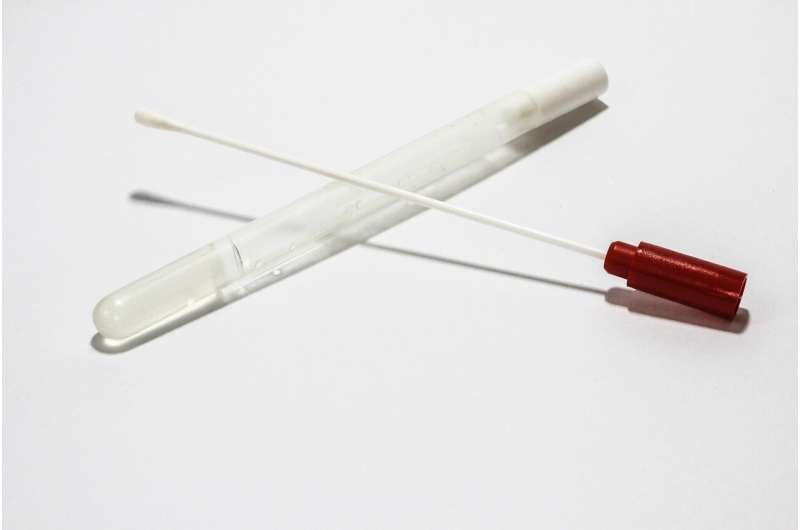Florida doctors use saliva test to reveal someone's future risk for Alzheimer's

Florida doctors are using a new test to determine someone's future risk for Alzheimer's disease from a few drops of spit.
At a time when the disease's prevalence is rising, the saliva test called genoSCORE analyzes more than 114,000 different genes to provide a score of 0 to 1 for your risk of getting Alzheimer's. A score of .5, for example, means you have a 50% of developing Alzheimer's at some point in your life.
Dr. Jeffrey Gelblum of First Choice Neurology, which has 41 locations in six Florida counties including Miami-Dade, Broward and Palm Beach, said his medical practice has partnered with Cytox, the UK developer, to start using the tests. Gelblum, whose office is in Aventura, said he already has prescribed the test to four patients in their 30s and 40s with a parent who has Alzheimer's disease but who do not have symptoms yet.
"Your risk is based on a continuum," Gelblum said. "If you get a zero, you have no chance. Anything over .5, there are multiple clinical trials I could place you in that give pre-symptomatic patients the ability to access promising new drug therapies."
He adds that lifestyle changes, such as diet and exercise, also have significant positive results for those testing for high risk of Alzheimer's.
For some, the drawback of the saliva test may be the price: The test kits available to anyone over 18 cost $599 and are not currently covered by insurance. They can be done at home, but to get a test kit requires a physician's prescription.
Research shows that people who have a parent or sibling with Alzheimer's are more likely to develop the disease than those who do not have a first-degree relative with it, according to the Alzheimer's Association. More than 6 million Americans are living with Alzheimer's and by 2050, this number is projected to more than double.
This is not the first and only test to look at the genetic link. DNA testing kits like 23andme look for a variant in the APOE gene associated with late-onset Alzheimer's disease. But Gelblum says the genoSCORE test is more sophisticated and is processed at a lab with CLIA accreditation, which ensures patient test results are accurate and reliable. "This looks at many more genes that contribute to the Alzheimer's condition," he said.
The test has been used in Europe since 2021.
Gelblum said he has been using spinal fluid to assess risk on patients showing symptoms of Alzheimer's, but has added this saliva test, which is less invasive and can detect risk earlier. "This could give us more information than a spinal tap, especially on younger patients who have years to go before they show symptoms."
"The Alzheimer's treatment space is robust right now," Gelblum said. "That is why this test is so important."
Stefanie Wardlow, senior program manager and research champion for the Alzheimer's Association cautions that genetic testing that indicates high risk doesn't mean you are going to get Alzheimer's. Instead, she said, tests that look for biomarkers through a PET scan, spinal tap or blood show whether someone has amyloid plaque or tau tangles in the brain, hallmarks of the disease. "Those are true indicators you could have the disease later in life."
Wardlow said a lot of attention is focused on prevention. Researchers nationally want to find out who is at highest risk in order to implement strategies to curb the disease before it progresses, she said.
Some research has found people who are genetically predisposed and adopt a healthy lifestyle were able to reduce their chances of getting Alzheimer's.
Nationally, new research studies—funded by federal grants—are looking at drugs that show promise for treatment including a monoclonal antibody.
2022 South Florida Sun Sentinel.
Distributed by Tribune Content Agency, LLC.


















